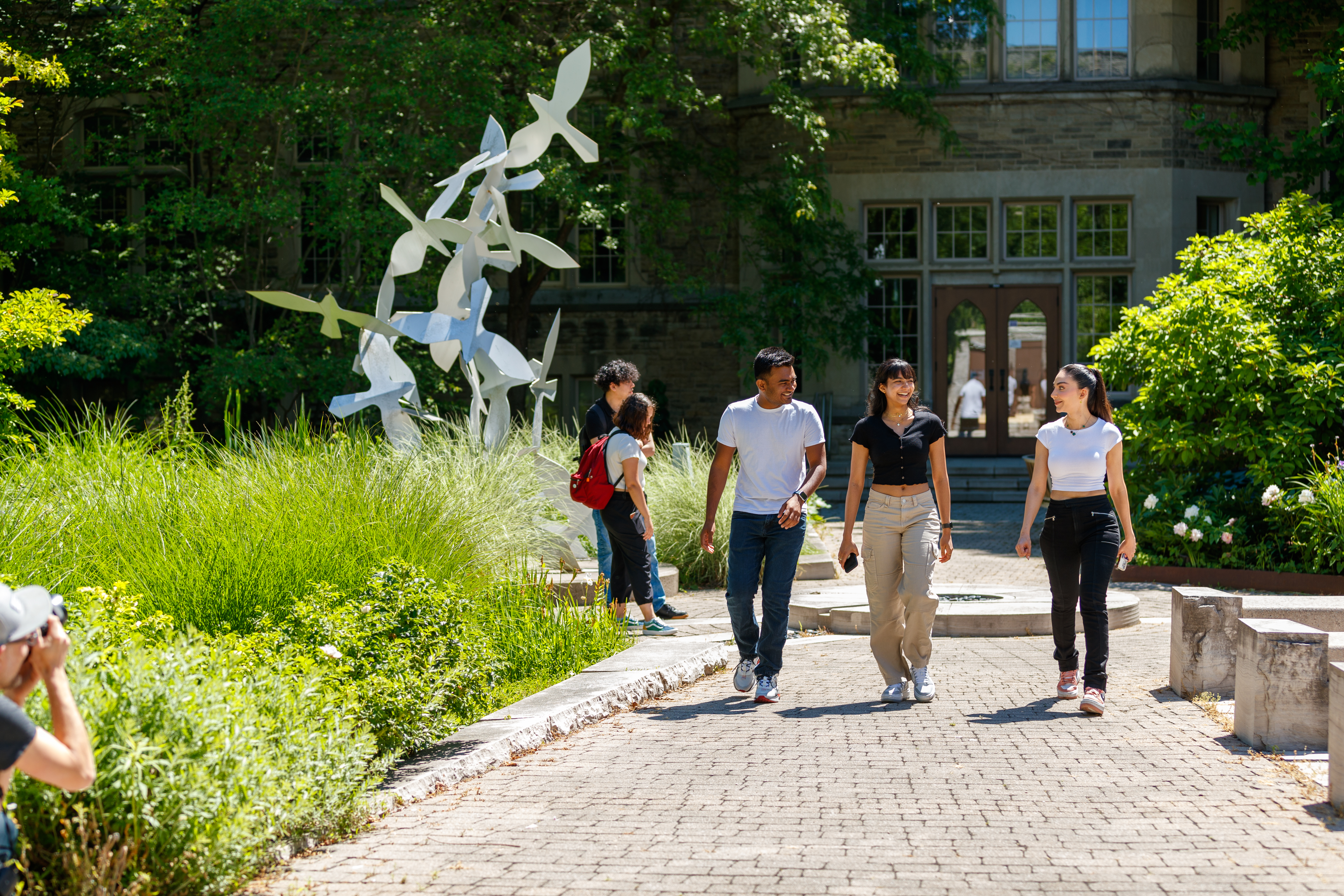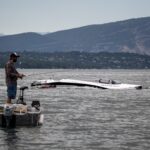As climate change intensifies, the world faces increasing threats from extreme weather events such as powerful winds, devastating floods, and unpredictable energy demands. These challenges amplify the vulnerabilities in infrastructure, communities, and ecosystems, highlighting the urgent need for resilience. Engineers are critical in developing innovative solutions to safeguard communities against these threats, from designing flood-resistant structures to creating sustainable energy systems that can stand up to harsh environments. Their expertise is essential in building resilient communities capable of withstanding the impacts of a rapidly changing climate and the growing frequency of multi-hazard events.
Graduates of the Civil and Environmental Engineering Department at Western University are up to these challenges. As alumni of Canada’s top-ranked university for civil engineering (Shanghai Rankings), they possess specialised knowledge and skills from the Master of Engineering (MEng) programme, making them highly sought after across industries and around the world.
Dorcas Olafimihan chose the MEng Civil Engineering for this precise reason.
“Its focus on sustainability and innovation resonates well with my interest in advancing sustainable infrastructure,” she says. “This programme has offered me a mix of challenging coursework, business-focused classes, and industry seminars that have helped enhance my forward-thinking abilities and connections, equipping me to spearhead significant projects within the built environment and beyond.”

Choose one of the three specialised areas in engineering, or a new one launching in summer 2025. Source: Western University
Outstanding academic curricula
The MEng in Civil Engineering offers four distinct areas of specialisation.
Structural & Infrastructural Engineering is about advanced analysis and design procedures for various structures. This includes learning about wind engineering, seismic design of structures, the design of foundations, and earth structures. You will also explore emerging topics in engineering, such as Building Information Modelling and Building Sustainability, in addition to professional development courses like Project Management and Engineering Business.
Environmental Engineering enhances your practical knowledge in advanced analysis, design procedures, and new concepts for various types of environmental engineering projects, including water resource management, climate change adaptation, treatment of wastewater, and remediation of soil and water contamination.
Geotechnical Engineering deals with the engineering behaviour of soil, rock, groundwater, and their impact on the design, construction, and operation of infrastructure. You’ll analyse soil behaviour under the influence of stresses for the design of foundations, retaining walls, tunnels, and earth dams, and for selecting railroad and highway routes.
Smart Cities, the latest addition, will be available in summer 2025. You’ll take interdisciplinary courses and integrate expertise from diverse fields such as infrastructure, transportation, and structural engineering with AI, the Internet of Things, data analytics, and advanced computing. This will equip you with the technical skills and knowledge needed to make urban areas more efficient, safe and sustainable, such as smart infrastructure operation, efficient resource management, and data-driven decision-making.
Courses such as Building Sustainability, Wind Engineering, and Building Information Modelling enable students to deepen their expertise in high-demand fields. This broadens their versatility while preserving a solid foundation in their chosen area of specialisation.
Whichever course or specialisation you join, you’ll have access to state-of-the-art facilities and research centres. These include the Boundary Layer Wind Tunnel Laboratory, Centre for Environment and Sustainability, Geotechnical Research Centre, Institute for Catastrophic Loss Reduction, and WindEEE Research Institute.
“Western offers excellent resources and opportunities, fostering a supportive environment where students can collaborate and pursue their goals,” student Lincoln Chan says. “The programme enables me to develop advanced knowledge and skills through practical coursework and projects, providing a solid foundation for my future career.”
Experience is the best teacher, which is why the MEng programme offers a paid co-op option. By gaining hands-on industry experience in Canada, you’ll have the opportunity to apply your knowledge, explore new interests, and broaden your professional network.
The combined MEng and Graduate Diploma in Engineering Leadership and Innovation (GDip) provide even more valuable opportunities to enhance your marketability as a graduate. The GDip develops an entrepreneurial mindset and leadership skills that are highly sought after in start-ups, established companies, and the public sector. By gaining the ability to bridge engineering with business and organisational leadership, you’ll be poised to fast-track your career in just 16 months.
Follow Western University on Facebook, Instagram, LinkedIn, Weibo, and YouTube.










